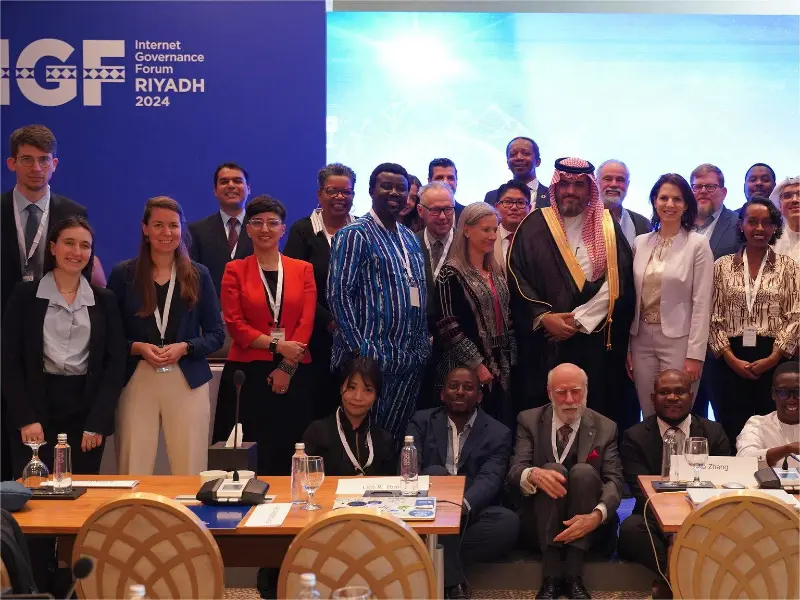- The IGF facilitates critical discussions that help shape international Internet-related policies and frameworks.
- The IGF actively engages young people in important conversations about the future of digital technologies.
OUR TAKE
The Internet Governance Forum (IGF) is a key platform under the UN, playing a big part in shaping how the global internet is governed. Through its forums, the IGF brings together a wide range of stakeholders to discuss and navigate the complexities of internet use and policy-making. Even though it’s an advisory body, the IGF’s influence is clear in its ability to start important conversations and frameworks that address both current and emerging digital challenges, such as AI, cybersecurity, and the digital divide.
–Heidi Luo, BTW reporter
Introduction to the IGF
The Internet Governance Forum (IGF) is a key platform for the UN, where people from all over the world come together to talk about how the internet is managed. What makes it special is that it’s not a formal decision-making body. Instead, it’s an open, inclusive space where a diverse group of stakeholders, from government officials to civil society members, can engage in discussions that tackle complex internet governance issues.
“The internet governance forum is truly instrumental in shaping the internet by ensuring that voices and concerns and expectations of all stakeholders, including those at the grassroots levels, are included in the evolution and advancement of the internet and technology,” Said Ida Padikuor Na-Tei, from internet society Ghana chapter.
A catalyst for global collaboration
Since it began in 2006 after the world summit on the information society (WSIS), the IGF has been a shining example of open and inclusive discussions on the future of the internet, making sure it stays a global public good. The IGF’s journey began with a vision to support the UN Secretary-General in promoting a sustainable policy environment for the internet.
Each year, the IGF organises global annual meetings where people from different sectors can come together to talk about some of the most pressing internet issues. The 18th Annual Meeting of the IGF was held in Kyoto, Japan, from 8 to 12 October 2023. Which had the theme “The internet we want – empowering all people”, showed how the forum is dedicated to helping diverse communities around the world.
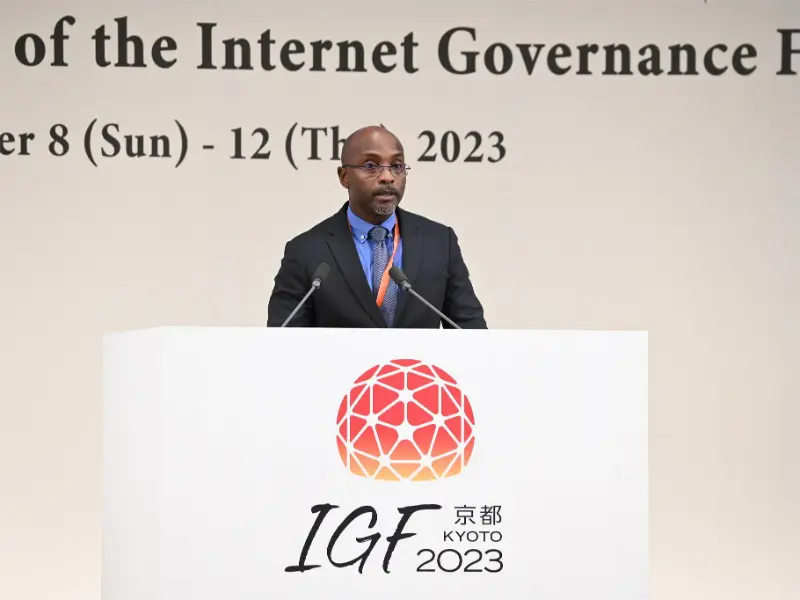
“I think that if we bring together people from all over the world with different points of view and use a multistakeholder approach, we can get the most out of the Internet while reducing the risks. I think this year’s meeting, with its overarching theme of the internet we want – empowering all people”, shows how seriously we take our commitment to make the internet work for everyone and to explore how we can build a sustainable future for humanity,” said Mr. Fumio Kishida, prime minister of Japan
The next event is the 19th IGF, which is set to take place in Riyadh, Saudi Arabia, at the King Abdulaziz international conference center from 15 to 19 December 2024. The theme is ‘Building our multistakeholder digital future’ and its aim is to create a future where everyone can have their say in the digital world.
Also read: 19th annual IGF meeting to converge in Riyadh with a hybrid format
“We are articulating the Internet we want. But we won’t get it if we don’t figure out how to get there. So I would urge the IGF participants to think more about how we are going to achieve the goals that we have already articulated in the internet we want. And that should be the outcome of the next IGF meetings in Riyadh and in the future,” said Mr Vint Cerf, chair of the IGF leadership panel.
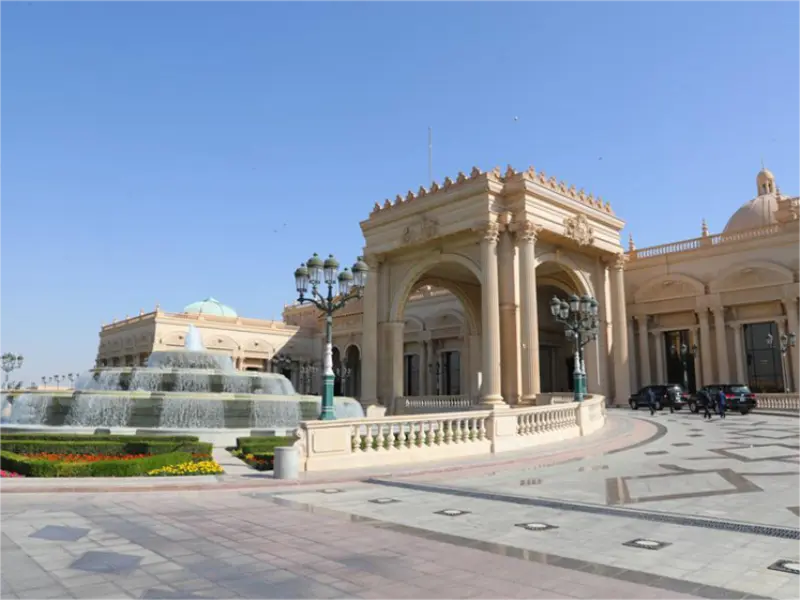
For nearly two decades, this multistakeholder cooperation has proven remarkably productive and remarkably resilient in the face of growing geopolitical tensions, proliferating crises, and widening divisions.
Mr. António Guterres, United Nations Secretary-General
2024 IGF – getting young people involved
As well as the annual meetings, the IGF also has regional forums where local issues are discussed. This makes sure that the solutions are as inclusive as the global community they serve. In the middle of a lot of discussion around internet governance, something special happened on 17 June 2024 in the historic city of Vilnius, Lithuania.
This event was part of the European Dialogue on Internet Governance, a regional forum under the IGF 2024 youth track, a dynamic, forward-looking project that this year focused on an increasingly important issue: the governance of artificial intelligence (AI), with one of the sessions looking at AI-generated political deepfakes.
Just picture a room, both physical and virtual, packed with keen young minds and experienced experts, all coming together to analyse the potential of AI in influencing political narratives. The workshop, called “AI and Threats: new strategies to detect AI-generated political deepfakes”, was a great place to share new ideas and talk about important issues.
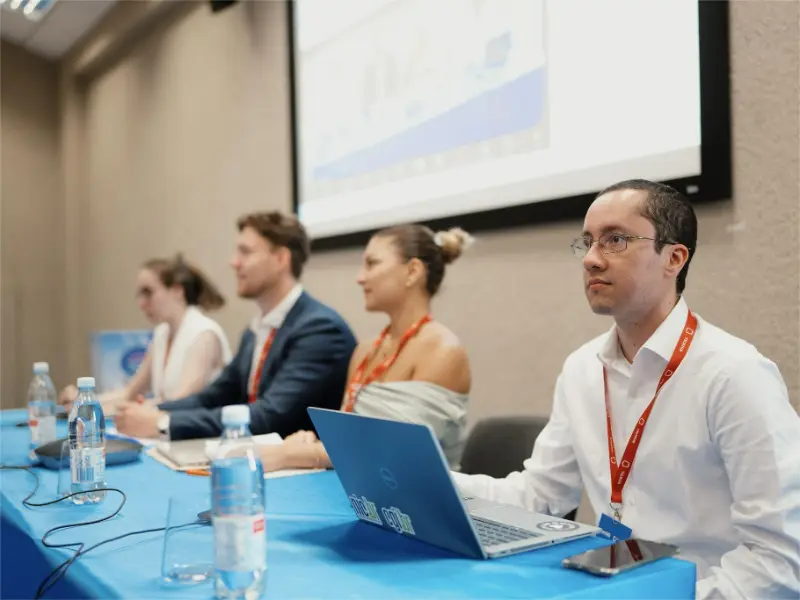
The discussions weren’t just technical, they were also about society as a whole. The participants looked at how these digital creations could affect public opinion or even affect the result of an election. This focus on deepfakes isn’t just theoretical. It shows that we need to work together globally and come up with new ideas for policy, where the ideas and energy of young people are not just welcome but seen as really important.
Also read: What is the Youth Internet Governance Forum?
The risks of AI deepfakes in elections
AI-generated deepfakes could have a major impact on the fairness of elections around the world. These tools can create fake videos of real people saying or doing things they didn’t actually do. As reported by prominent media outlets such as the BBC and the New York Times, the technology behind these deepfakes is becoming increasingly sophisticated and accessible, making it easier and cheaper to spread disinformation.
In January, for example, a robocall imitating US President Joe Biden was sent to voters in New Hampshire. The AI-generated voice told people to “save your vote for the November election”, which was misleading because it made it sound like if you voted in the primary, you couldn’t vote in the general election.
Similarly, AI-manipulated content has also been used to disrupt elections in Slovakia and Nigeria. In Slovakia, fabricated audio recordings made it seem as though a liberal candidate planned to increase alcohol prices and rig the election, which severely damaged his reputation just before the polls. Meanwhile, in Nigeria, a deepfake audio clip falsely implicated a presidential candidate in election fraud plans, which caused controversy and distrust among voters.
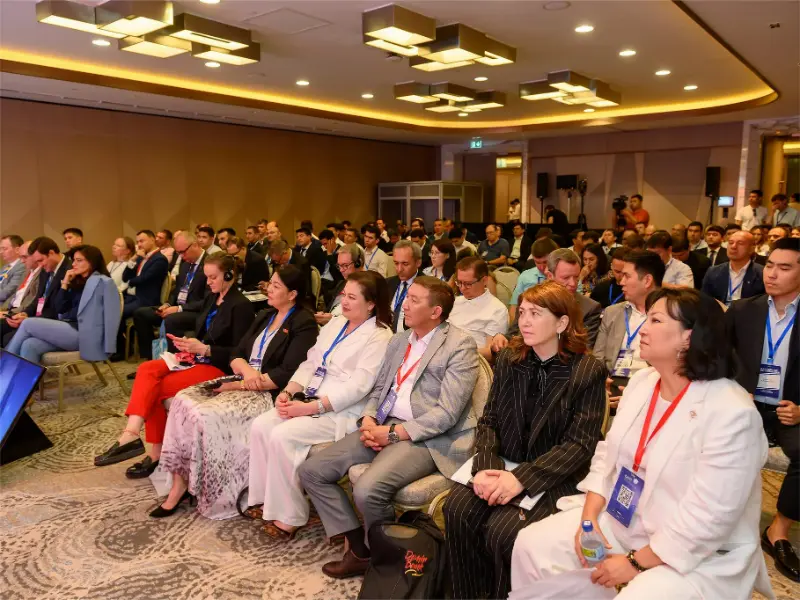
IGF is taking these issues head on by putting together strategies that give young people the tools to spot and tackle these threats. The workshops are all about giving young people the tools to assess and question the authenticity of online information and to understand the broader implications of AI technologies in politic in the face of new digital threats.
The impact of the internet has never been greater. The IGF plays a central role as a facilitator and forum for important discussions, for governments, civil societies, the academic sector, the technical community and the private sector.
Mr Sigbjorn Gjelsvik, minister, ministry of local government and regional development of Norway
Impact and achievements
One of the notable achievements of the IGF in addressing the challenges of cybersecurity, data privacy and the digital divide can be seen in its influence on the development of the African union’s convention on cybersecurity and personal data protection. Adopted in 2014, This convention was influenced in part by discussions and guidelines formulated at various IGF meetings, which emphasised the importance of robust legal frameworks to protect online data and enhance cybersecurity in all countries.
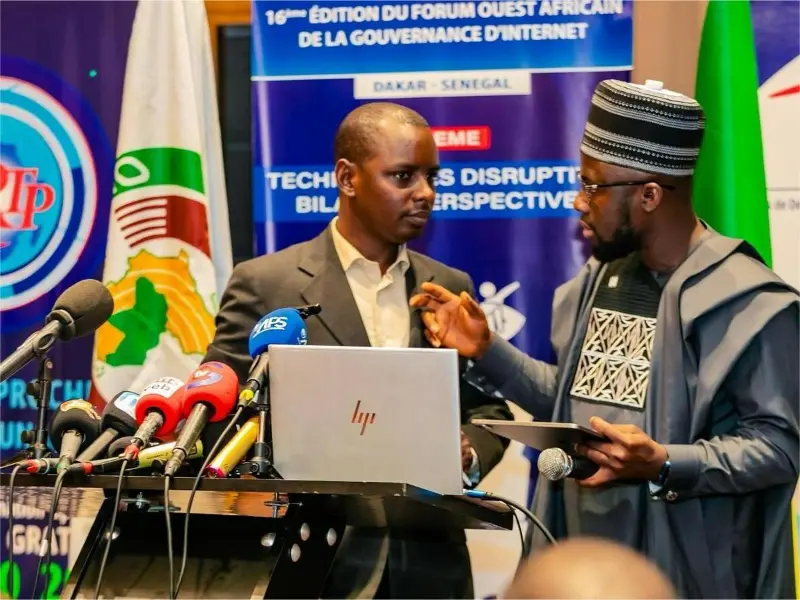
The convention serves multiple purposes: not only does it protect individuals’ data from cyber threats, but it also builds trust in digital transactions, thereby fostering economic growth. This legal framework, which was significantly shaped by the IGF’s inclusive and multi-stakeholder dialogues, sets the stage for a more secure digital environment in Africa.
Its commitment to bridging the digital divide is also evident in initiatives to increase internet access. Imagine remote villages and isolated communities finally connected to the global network, empowered by policies and infrastructure discussed in IGF forums. It’s about opening doors to education, business opportunities and global engagement, not just providing Internet access.
Pop quiz:
Where will the 19th annual meeting of the Internet Governance Forum (IGF) be held?
A. Kyoto, Japan
B. Riyadh, Saudi Arabia
C. Vilnius, Lithuania
D. New York, USA
The correct answer is at the bottom of the article.
Challenges and criticisms
A major criticism of the IGF is that its decisions and recommendations are advisory rather than binding, which casts doubt on their real-world impact. For example, while the IGF has developed extensive data protection guidelines, their adoption varies widely from country to country. This leads to uneven standards of protection around the world, leaving some regions more vulnerable to data breaches and cyber threats.
Also, people often wonder if the IGF is actually effective because it doesn’t seem to influence policy enforcement much. For instance, there have been lots of discussions at the IGF about the need for stronger cybersecurity measures. But because it doesn’t have the power to make things happen, the forum can only rely on its members to do the right thing. This gap is particularly noticeable when you compare the strong cyber defences of developed countries to the less secure systems in developing countries, despite similar discussions at the IGF.
Another thing that people argue about is who is at the IGF. Some say that the forum doesn’t represent all the different places in the world or all the different people who have a stake in it. For example, some people in Africa and some people in Latin America say that their views and their problems aren’t as visible or as talked about as they should be. This could affect what gets talked about and what gets decided, because some places have different needs when it comes to the internet
The future of the IGF
After a great discussion on AI and political deepfakes in Lithuania, the IGF 2024 youth track will move on to its next event on 20 August 2024. Hosted by the youth Asia-Pacific internet governance forum, this second workshop titled “AI and education: ChatGPT use in schools and AI capacity development” focused on integrating AI tools like ChatGPT into educational environments and what that means for developing AI expertise.
And there was more to explore when it came to AI’s impact on society. At the youth Latin American and Caribbean internet governance forum, a workshop called “AI and Human Rights” will look at how AI technologies affect human rights issues. Meanwhile, the African IGF will host a session called “building a responsible AI ecosystem.”
As the digital landscape moves fast, the IGF is right at the heart of some big issues and new opportunities. It’s ready to tackle important topics like how to govern AI, the impact of digital tech on democracy, and the urgent need to bridge the digital divide. With an agenda focused on digital inclusion and the ethical implications of new tech, the IGF is shaping a future that’s as fair as it is innovative.
“Cybersecurity is one of the areas where we should work together to ensure that other users of internet technology,” said Mr Jun Murai, dean of the graduate school of media and governance, Keio University. “But at the same time, with the proper use of the technology of the internet, we can also work together for the ethical use of the Internet.”
The correct answer is B, Riyadh, Saudi Arabia.

